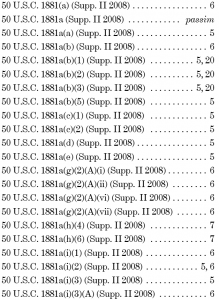Our Government’s UnPATRIOTic Investigation of Aaron Swartz
As I noted back in December 2010, as soon as Eric Holder declared WikiLeaks’ purported crime to be Espionage, it opened up a whole slew of investigative methods associated with the PATRIOT Act. It allowed the government to use National Security Letters to get financial and call records. It allowed them to use Section 215 orders to get “any tangible thing.” And all that’s after FISA Amendments Act, which permits the government to bulk collect “foreign intelligence” on a target overseas–whether or not that foreign target is suspected of Espionage–that includes that target’s communications with Americans. The government may well be using Section 215 to later access the US person communications that have been collected under an FAA order, though that detail is one the government refuses to share with the American people.
At no point would a judge have the opportunity to challenge Holder’s assertion that a website publishing documents offered up anonymously is engaged in Espionage. All it would take is Holder’s assertion that it was, and those investigative powers would become available.
No matter how many Americans got sucked up into that investigation.
Which is why I find it interesting that Aaron Swartz’ lawyers were asking, last summer–but got only indirect answers–about how the government had collected some of the evidence, particularly emails, turned over to the grand jury.
This paragraph asked the government to “identify the origin of any and all statements of Aaron Swartz including but not limited to emails, text messages, chats, documents, memoranda or letters, i.e., to identify the source from which each statement was received and the legal procedure used to obtain each such statement of the defendant.” Swartz has received in discovery internet memoranda and chats purporting to be from him. For example, the discovery contains a number of chats on googlegroups.com which contain entries which facially indicate that Swartz was a participant in the communications. The discovery also contains a number of emails which on their faces indicate that they were either to or from Swartz. Swartz requires the additional information requested – the source of these statements and the procedure used by the government to obtain them – to enable him to move to suppress such statements if grounds exist to do so, which he cannot determine without the requested information.
The government offered this explanation.
In Paragraph 15, the defendant would require the government to identify the origin of any and all statements of Aaron Swartz in its possession and the legal procedure used to obtain the statements. All of the emails, text messages, chat sessions, and documents containing statements provided by the defendant relevant to this case were obtained either from individuals with whom the defendant communicated or from publicly available websites stored on the Internet. No emails, texts messages, chat logs, or documents were obtained from Internet service providers using orders under 18 U.S.C. 2703(d). As previously represented to defense counsel, there was no court-authorized electronic surveillance in this case. [my emphasis]
The government admits the defense has asked for the content and origin of all Aaron’s statement in its possession. In response, it described how it had gotten Aaron’s statements relevant to this case–which may well be just a subset of Aaron’s statements in their possession. It also says that it did not obtain any of his statements (presumably referring to the larger potential universe) using 18 USC 2703(d), which is how DOJ demanded Twitter information on four WikiLeaks figures in late 2010 to early 2011. It suggests everything it got relevant to this case was either willingly from people involved in private conversations with him–though it didn’t say whether it asked for them specifically or not–or from publicly available places. And it alludes to an earlier representation to the defense about whether or not it had intercepted Aaron’s communications in this case.
I believe these are the representations in question, which comes from early discovery discussions in August 2011.
C. Electronic Surveillance under Local Rule 1 16.1 (C)(l)(c)
No oral, wire, or electronic communications of the defendant as defined in 18 U.S.C. § 2510 were intercepted relating to the charges in the indictment.
D. Consensual Interceptions under Local Rule 1 16.1 (C)(l)(d)
There were no interceptions (as the term “intercept” is defined in 18 U.S.C. § 2510(4)) of wire, oral, or electronic communications relating to the charges contained in the indictment, made with the consent of one of the parties to the communication in which the defendant was intercepted or which the government intends to offer as evidence in its case-in-chief.
As you can see, in this statement the government made in August 2011 anticipated some of the same dodges the government was making in June 2012.
But in the earlier statement, the limitation on its assertions are even narrower than the later one. Whereas by June 2012 they were making assertions about “this case” in general, when they first discussed the issue, they discussed only the communications related to “the charges contained in the indictment” (though presumably they may have still been considering other charges).
Also, the second paragraph makes it very clear it is discussing intercepts only as defined under the Title III definition for intercept, which pertains to communications collected in transit. I’m not sure what the government considers communications collected under FISA and stored, though I would not be surprised, given all the discussions about the government yoking Section 215 onto FAA if they had some creative treatment of those US person communications.
None of that is proof that they had accessed Swartz’ communications via other means or, indeed, that they have any communications outside those pertaining directly to JSTOR downloads.
But their very careful hedges sure seem to leave that possibility open.

